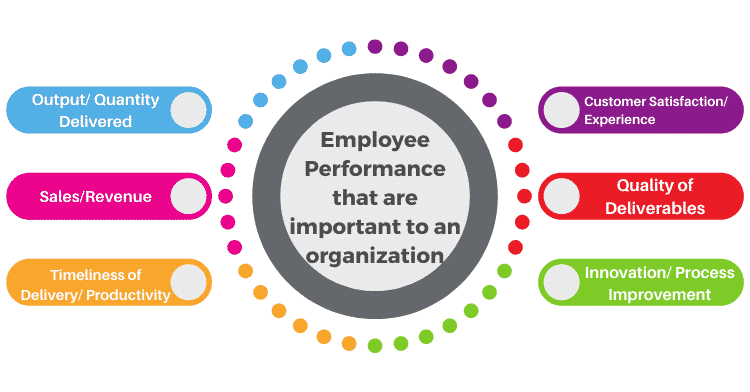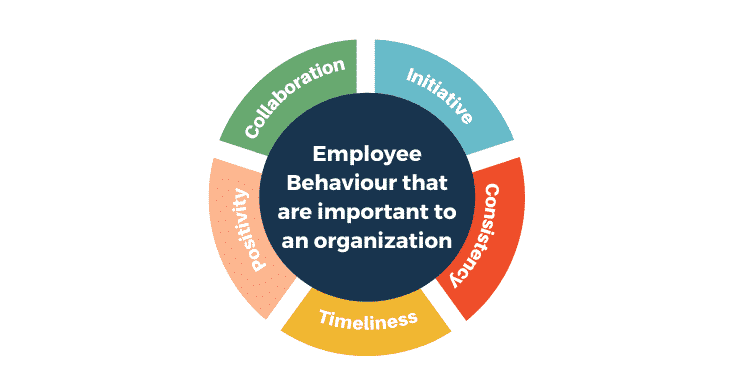1. Organizations should strike a balance between rewarding employee performance (measured by business metrics such as sales, customer satisfaction, and productivity) and behavior (including collaboration, initiative, and positivity) to drive long-term success.
2. Traditional reward systems focus on high performance, but there’s a growing recognition of the importance of rewarding desirable behavior that aligns with company values and culture.
3. A well-rounded reward system considers both the achievement of business goals (the “end”) and the positive behaviors contributing to a healthy workplace culture (the “means to the end”).
4. By integrating performance and behavior in reward systems, organizations can motivate employees holistically, enhancing productivity and workplace culture.
A well-designed employee rewards system can enhance productivity, growth, and profitability by motivating the workforce to go that extra mile. However, when developing such programs, organizations often face the dilemma of balancing the reward for employee performance or behavior.
We take a deeper look into this subject to help organizations address this concern:
Both the performance and behavior of employees are critical to the success of organizations.
Employee performance is usually measurable in terms of the business metrics or output against predefined goals.
It has a direct impact on the organization’s performance.

Since the ‘proof of the pudding is in its eating.’ It is almost a no-brainer that traditional employee reward systems have always rewarded high performers.
As it is, organizations have regarded these top performers as the biggest contributors to business growth and profitability.

However, of late, organizations have also come to acknowledge the importance of good employee behavior.
They have understood that ‘the means to the end’ is as essential.

Employee behavior can impact workplace culture and goodwill significantly in the long run.
Hence, many organizations have made desirable behavior an integral part of their reward systems.
Hence, by appreciating specific behavioral traits, organizations can motivate employees to align their behavior with the company’s core values and culture.

The performance of employees ultimately determines the success of the organization.
An organization with more high-performing employees is likely to grow faster, be more profitable, and capture a higher market share.
The performance of individual employees, as well as teams, is measured against goals, defined in terms of business metrics or outcomes.
The following is a list of such key metrics that define the goals and performance of the employees:

1. Sales/Revenue
2. Customer Satisfaction/ Experience
3. Output/ Quantity Delivered
4. Quality of Deliverables
5. Timeliness of Delivery/ Productivity
6. Innovation/ Process Improvement

Unlike employee performance, which can be clearly defined as KPIs and goals, desirable behaviors are more challenging to determine.
However, organizations today have understood the strong linkage between employee behavior, work culture, and long-term business success.
Employee behavior can significantly impact an organization’s employer brand value and its ability to attract, hire, and retain top talent.
Here are critical aspects of employee behavior that strongly link to the success of any organization:

1. Collaboration: Working smoothly and coordinating with co-workers, peers, and supervisors.
2. Initiative: The willingness to take on new challenges to bring positive business or workplace changes.
3. Positivity: Ability to always stay upbeat and optimistic, even during a crisis.
4. Timeliness: Ability to stay focused and complete tasks on time, every single time, despite challenges.
5. Consistency: Strong will and persistence to deliver despite challenging situations.

Organizations have traditionally recognized and rewarded employees for their outstanding performance.
However, this mindset has changed over the years as they realize the importance of employee behavior, company values, and work culture for long-term success.
Hence, many organizations have incorporated employee behavior as a key element in the employee reward systems in recent times.

Organizations are now adopting a more balanced approach to employee rewards, taking into account both performance and behavior.
The following are a few pointers for organizations in this regard:
1. Reward systems should give fair weightage to employee performance and behavioral traits.
2. Organizations should ensure these behavioral traits align with company values and desired work culture.
3. Employee performance should continue to be measurable against key business metrics.
4. The employee rewards system becomes more balanced, rewarding both ‘ends’ and ‘means to the end.
Organizations faced with the dilemma of whether to reward employee performance or behavior need to take a more balanced approach of rewarding the contributions of the employees towards achieving business goals as well as towards creating a more positive work environment.

Lead author: Sagar Chaudhuri, the Co-Founder and CEO of HiFives. He is an HR Tech Evangelist with over 25 years of experience in both corporate and entrepreneurial settings. Previously, Sagar has held leadership roles with companies such as Genpact, Infosys, and ICICI Bank. He has an engineering degree from IIT Kharagpur and an MBA from IIM Lucknow. Connect on LinkedIn
To stay updated on the latest HiFives blogs, follow us on Twitter (@MyHiFives)